English teacher overcomes hearing impairment
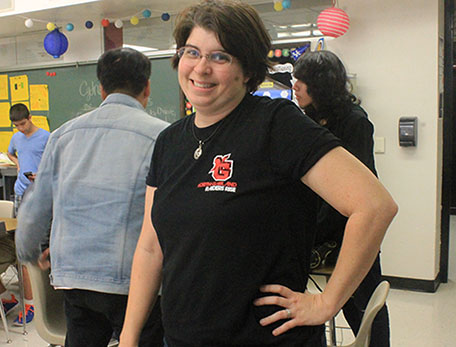
English teacher Mrs. Amanda McClelland
November 3, 2015
Awkwardly standing outside the classroom door, knowing half the class is trying to listen to what the teacher is saying, Amanda McClelland stares at her sixth grade teacher on the first day of school. McClelland is told she does not belong in that class because of her hearing impairment; however, she remains there and does everything in her power to succeed.
“I didn’t know what to do,” McClelland said. “It was really difficult, but I rose to the challenge.”
McClelland was born with a hearing impairment where she could only hear out of one ear. Since she could only hear the soft voices of people when she could see them speaking, she did not find out about her hearing impairment until her parents found out. Her parents found out when they had her hearing tested due to her difficulty with speech.
“Nowadays they do hearing tests on babies, like right when they’re born, but back then they didn’t do that,” McClelland said. “As a result, I didn’t learn to speak until I was about four years old.”
Once her parents found out about her impairment, McClelland was not placed in a deaf educational program at school, but rather she went to a regular public school and wore hearing aids. She had speech therapy for 13 years to allow her to communicate with her peers and teachers more adequately.
“I went to classes with all the regular kids, and I was the only one in my school that had a hearing loss,” McClelland said. “None of my friends knew sign language. None of my family knew sign language. That’s why I had speech therapy for so long. ”
As a result of attending public school her entire life, McClelland knows both spoken English and sign language. She considers herself a hearing person because of her ability to transition between American Sign Language (ASL) and spoken English. She says that being bilingual always opens doors for people, and that was the case for her.
“I can communicate with my deaf friends that only use sign language, and I can communicate in the world with hearing people as well,” McClelland said. “That is one of the reasons why I was able to succeed a lot better than my friends who just learned sign language.”
McClelland also credits her mom for much of her success and for encouraging her during hard times.
“My mom told me that I’m not a disabled person, and that there’s nothing wrong with me, except for the fact that I didn’t hear as well as others did,” McClelland said. “My mom was a really big figure in my life. She would help me hear, and she would tell me some of the things that I would miss here and there.”
When McClelland’s mom became sick with amyotrophic lateral sclerosis (also known as ALS or Lou Gehrig’s) the tables turned as McClelland helped her mom with her struggles.
“When she got sick, there was a point where she couldn’t talk anymore,” McClelland said. “She would move her mouth and I would be able to read her lips and tell everybody what she said. I became my mom’s voice for a while.”
McClelland said she regrets not getting cochlear implants – an electronic medical device that replaces the damaged part of the inner ear to provide sound signals for the brain – before her mom passed while she was in college. However, she feels blessed to have received them when she did. The reason she received them in the first place was because her hearing was getting worse, so she felt she needed to do something about it as quickly as possible.
“I got cochlear implants when I was in my 20s, and it was a leap of faith,” McClelland said. “You’re telling somebody who had a hearing loss their entire life, that they would be able to talk on the phone. I didn’t believe that.”
Although part of the reason why she became a teacher was because many of her family members were teachers/professors, the main reason she pursued a teaching career in English was to encourage her students and help them overcome tough situations.
“I see my students overcome a lot of challenges every single day, no matter what,” McClelland said. “I know that they can do it, because I’ve been in their shoes. I’ve had someone say, ‘I don’t think you’re good enough. I don’t think you’re smart enough. I don’t think you should be here,’ and I rose to the challenge. I try to support and encourage my students as much as I can, so that they can be successful.”


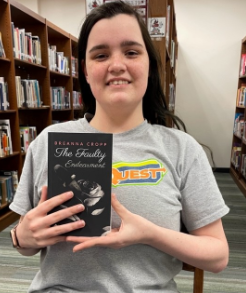

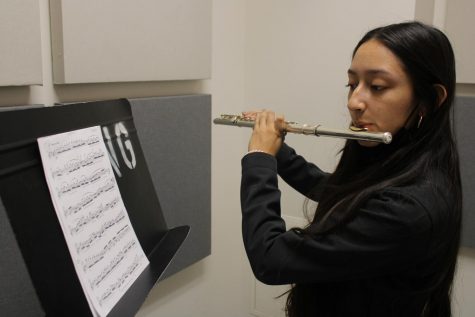
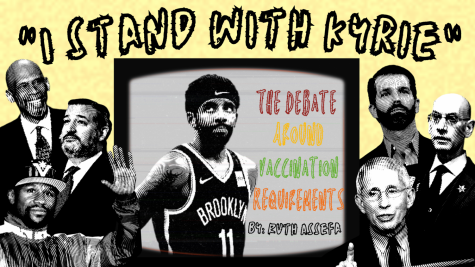
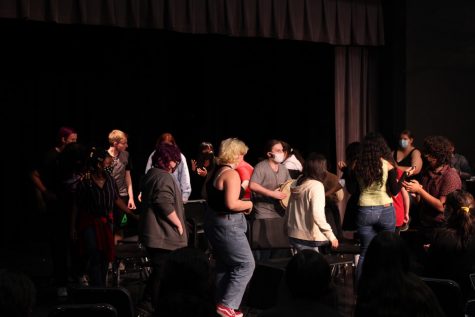
Ms. Edwards • Nov 5, 2015 at 9:28 am
You Rock! I am so proud of you! You are a great person with a great spirit! Keep working hard! Your story is an inspiration!
Darron Brown • Nov 4, 2015 at 8:50 am
Wow Ms. you went through a lot in your life